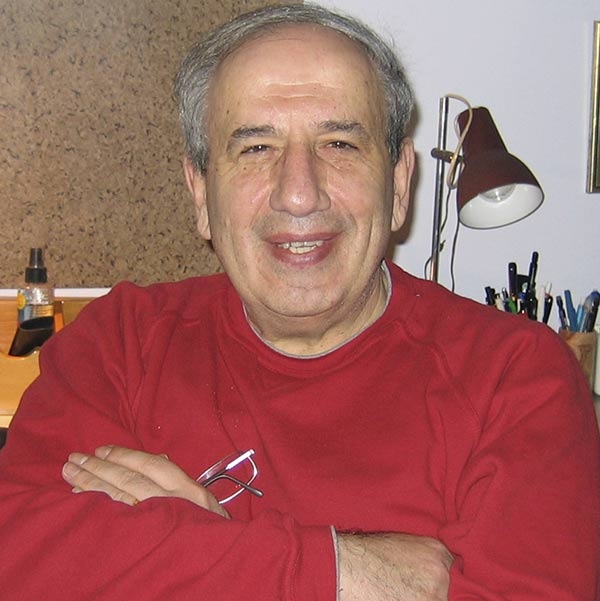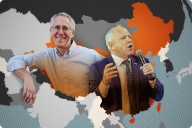You have /5 articles left.
Sign up for a free account or log in.

Kemal Gürüz
Committee of Concerned Scientists/Gürüz Family
International scholarly groups are protesting the recent convictions of six Turkish scientists on terrorism-related charges after trials that were widely condemned as unjust. The convictions of the six academics, including Kemal Gürüz, a chemical engineer and the former president of the country's Council of Higher Education, come at a time of increasing concern regarding the state of academic freedom and independence in Turkey.
Gürüz was sentenced to 13 years and 11 months in connection with the controversial Ergenekon trial, which involved 275 defendants, mostly military or ex-military officers but also journalists, politicians, academics and others accused of plotting to overthrow the government. The five other academics involved – all medical doctors and all former rectors of Turkish universities – were also convicted of membership in a clandestine terrorist organization seeking to destabilize the Turkish government. They received sentences from 10 to 23 years in length, according to the International Human Rights Network of Academies and Scholarly Societies, which commissioned an inquiry into the scientists’ cases and found that they did not receive fair trials.
As “no convincing evidence of any wrongdoing on [Gürüz’s] part, or that of the other five defendants who were sentenced, was ever produced, the trial and resulting sentences appear to have been a blatant miscarriage of justice,” said Carol Corillon, the executive director of the network.
As The New York Times has reported, the Ergenekon trial was initially seen by many as a welcome attempt to curb the powers of the military – which has been behind three coups in modern Turkey’s history – and bring about democratic reforms. “But as the case grew and ensnared journalists," the Times stated, "academics and prominent government critics, it came to be seen as a politically motivated attempt at silencing dissent.” The trial was perceived as targeting secularist opponents of the Islamist-inspired government of Prime Minister Recep Tayyip Erdogan.
In an op-ed in the Times, Emma Sinclair-Webb, a senior Europe researcher at Human Rights Watch, wrote that the "proceedings were also overshadowed by concerns about the fairness of the trial. These ranged from questions about the flimsy nature of evidence against some defendants, the implications for media freedom arising from the prosecution of journalists as coup plotters, concerns about the appropriateness of the application of terrorism charges, objections to the misuse of protected witnesses, which impeded the defendants’ ability to challenge the evidence against them, and in particular the prolonged pretrial detention of some defendants.”
Two of the six scholars sentenced last week – Mehmet Haberal, a transplant surgeon and founding rector of Başkent University, and Fatih Hilmioğlu, a gastroenterologist and former rector of Inönü University -- had been detained for more than four years before their trials began.
“Visits with the two of them were far and away the saddest and most depressing parts of the visit,” said Peter Diamond, Institute professor emeritus at the Massachusetts Institute of Technology and a co-author of the International Human Rights Network of Academies and Scholarly Societies' report on its mission to Turkey. “Each of them had been in prison for over four years already; both [were] in bad health. This was taking a terrible toll.”
Diamond said he believed the medical doctors and university rectors were targeted as part of a broader attempt to intimidate secularist-minded university leaders and exert greater government control over universities.
As for Gürüz, who is known as a prominent voice for secularization in higher education, Diamond said the motive seemed to be “revenge.” As head of Turkey's Council of Higher Education from 1995 until 2003, Gürüz enforced the ban on Islamic head-scarves at public universities. Apart from the sentence handed down in the Ergenekon trial, Gürüz also faces charges as part of a second judicial proceeding stemming from an unarmed intervention by the military in civil affairs in 1997 -- the so-called “Postmodern Coup" trial.
In a call for letters on behalf of Gürüz, the Scholars at Risk Network wrote, “We are particularly concerned by suggestions that the repeated prosecutions of Professor Gürüz stem from his many years of work actively promoting reforms in Turkish higher education, including his advocacy of a Western-oriented higher education policy and support for international higher education exchanges between Turkey and other nations. It is precisely through these partnerships, many of which Professor Gürüz personally helped to establish, that many members of the international higher education community have come to know and respect Turkish higher education institutions, professionals and students. The suggestion that somehow Professor Gürüz is being prosecuted based on these efforts is disturbing and risks eroding Turkey’s otherwise much deserved positive reputation in the sector.”
The Turkish embassy in Washington did not respond to requests for comment. The sentences of these academics come on the heels of a number of other cases calling into question issues of academic independence and freedom in Turkey, including, as the Middle East Studies Association’s Committee on Academic Freedom has documented, a pattern of arrests and detentions of scholars and students who research Kurdish issues. There have also been reports of infringements of academic freedom on the part of government-appointed rectors, and, in February, the association wrote to the prime minister condemning the “excessive” use of police force to disperse student protesters at Ankara’s Middle East Technical University – a response that’s seen as a precursor to the government’s suppression of the Gezi Park protests that followed.
Asli Bâli, an assistant professor of law at the University of California at Los Angeles who researches Turkish issues for the Middle East Studies Association's Committee on Academic Freedom, said the government recently announced plans to replace private security forces on campuses with state police forces and to revoke scholarships for students known to have participated in the anti-government protests.
All of this can be seen as part and parcel of the same general trend, Bâli said. “There are multiple elements of the trend. One is the government’s attempt to gain control of public universities, which have [historically] been the site of the exclusion of their own constituents” – specifically, Muslim women wearing head scarves. (The ban on students wearing head scarves was lifted in 2010.)
Faculty and administrators perceived by the government to have been aligned with the secularist military-bureaucratic alliance that previously controlled the regulation of higher education, academics researching Kurdish issues, and scholars or students who were involved in the recent anti-government protests are all under pressure, Bâli said. “Unless you’re ideologically aligned with the government you’re going to have extreme difficulty doing your job as an academic or a student.”








